The content of the article
When the first child appears in the family, it is always a great joy, all new and unknown. If the child begins to cry, young parents worry, begin to get nervous and worry about this. It is worth saying that colic in newborns is a normal process in the child’s body, but it is quite painful and there is no cure for this yet.
Colic causes severe pain in the abdomen, it is because of this that the baby cries terribly. But not everything is as scary as it might seem at first glance. The occurrence of colic in an infant or newborn is not a constant phenomenon and gradually it disappears. And in order to ease the pain a little, there are several methods.
The main thing that parents should understand: colic in a baby is not a terrible problem, after a while it disappears by itself. A child is born, and after three weeks he may begin to have problems with his tummy. Usually they accompany the baby up to three months.
The appearance of intestinal colic in newborns
In a family where there is a newborn baby, you can hear the frequent cries of the baby, especially at night. In most cases, the child is torn because of abdominal pain. These are colic, their duration can be up to three hours.
Almost every newborn suffers from colic, and such a process has been known for a long time, probably just as much as humanity exists. But medicine has not yet invented a medicine that would eliminate this problem. Older children also have colic, although the body is stronger and adapted to the external environment.
There are several hypotheses why babies develop colic. The most common of them is the ingress of excess air into the stomach. In the process of feeding or with strong crying, the child swallows it, which causes such an action.
Medical specialists identify several causes of colic:
- If the feeding process is carried out by the breast, perhaps the baby does not capture the nipple correctly. In this process, it turns out that the baby has enough air. This may not cause colic, but complicate and make their course more painful.
- When the feeding was over, the baby did not burp with excess air, which is in the stomach. Then the air is distributed throughout the intestines, squeezes its walls and terrible pain appears.
- The child lies too much. This leads to discomfort during digestion, and severity and pain appear.
- The baby often cries. When a child has a stomach ache, he screams and rolls up from tears and roars, at this moment he swallows a lot of excess air, which can lead to new bouts of pain.
- The child was overfed. When a baby eats food more than his body can digest, food remains in the stomach, fermentation begins, gases and bouts of colic appear.
Symptoms of colic in a newborn and baby
Usually colic is determined by parents according to the symptoms manifested in the behavior of the child. The kid begins to scream loudly, crying. This phenomenon begins unexpectedly, and ends. In young children, stomach problems often begin after feeding in the evening. This condition can last on average up to three hours. Older children may have a slight bloating, while usually they have a red face from tension, tight legs.
Colic is pain, and in each person it manifests itself in different ways.One child can cry a lot, wave his hands, another baby will bend in pain, and a third - from severe pain, is trying to bite his fist.
In any case, the diagnosis of the occurrence of colic should be made by the doctor. If the baby suddenly began to cry and can’t get rocked, then you should immediately consult a pediatrician. The pediatrician will examine the baby, and only when all possible variants of this condition are excluded can they diagnose colic.
Erroneous speculations of parents
Perhaps every mother faced such a problem when the child was small and screaming loudly at night because of a pain in the tummy. To do this, she, of course, used various methods to eliminate pain or at least reduce it so that it would not be so painful. The methods all moms choose are almost the same. Any of them is aimed at helping the baby to relieve pain and rather relieve them - if the pain goes away, then there will be no problem.
When a small child suffers from pain, I want to help him by any means, and then parents begin to use all the methods in a row, not figuring out whether they are effective or not. For example, there are several hypotheses about the occurrence of colic in babies and newborns, from which it is clear that the accepted methods of treatment usually do not give a result, and in some cases can harm the health of the crumbs.
- Hypothesis: there is an opinion that such pain in newborns and infants may appear after breastfeeding, but if before that mother used certain foods. That is, she does not follow special diets and eats those foods that lead to such a reaction, the child’s body. And if she follows a special diet, then the baby will not have abdominal pains. Then the question follows, how do such substances enter the body of a child who is on artificial feeding? What mother eats does not affect the appearance of colic in a newborn baby.
- Hypothesis: some believe that colic comes from dysbiosis. The child is still very small and his body is just beginning its formation process, therefore, his stomach does not have any protective microflora. None of the books and the registry of childhood diseases has dysbacteriosis.
- Hypothesis: in children under four months of age, the intestines are unstable and colic appears during digestion. From statistics it follows that almost 70% of newborns suffer from colic. Then the remaining 30% have a stomach with established work as an adult?
- Hypothesis: young parents think that their baby has colic due to lactose intolerance. Children who eat lactose-free mixtures also have colic. And according to statistics, 70% of children under three months of age suffer from colic, and congenital lactose deficiency in one child per 130,000 peers.
If the child has colic and the mother begins to use the diet in her diet, drugs for dysbiosis are bought, drugs and enzymes are used to absorb lactose, then this initiative will not lead to anything good, but can only harm the child’s health. Such methods will not help save the child from colic. To save the baby from terrible pain, it is better to use the recommendations of experienced doctors, this does not always help, but it will certainly be safe for the health of the child.
Harmless ways to prevent colic in newborns and infants
Today in the pharmacy you can find many different medications for stomach pain in young children, that is, colic, but there are medical experts who claim that there is not a single reliable medicine for this phenomenon. To cope with such a problem, only parental patience will help, who need to stock up for three whole months, and time. The pains in the tummy are temporary, and when the child reaches the age of three months, they will pass.
Pediatricians in such cases do not immediately prescribe medications, initially they offer the following actions:
- Massage the baby’s tummy, such massages are performed every day and more than once.
- Warm diaper. Many mothers noted that warming the tummy reduces pain. To do this, just iron the diaper and put it on the baby’s stomach.
- The child should be more upright. This is necessary not only after he eats, but throughout the day. Accordingly, this is the conclusion - it is worth carrying the baby as much as possible.
- If possible, it will be good for the child if the parents will wear it in a special backpack or in a sling. Any movements of the baby are beneficial for his intestines.
- If the baby is breastfeeding, then you can take the help of a breastfeeding specialist and get his advice. There are special associations and centers.
- If the child is on artificial feeding, then you should buy a bottle, the addition of which is a tube. It is used to bleed air. Thanks to this set, during feeding, the air practically does not enter the baby’s stomach.
- You can use the vent pipe. It is used if the child has not farted and farted for a long time. With its help, you can remove gases that have already entered the rectum. Most of all, the air that accumulates in the intestine causes pain. It does not always go fast, and accelerating such a process is not otherwise possible.
How to relieve pain in a newborn and an infant with colic
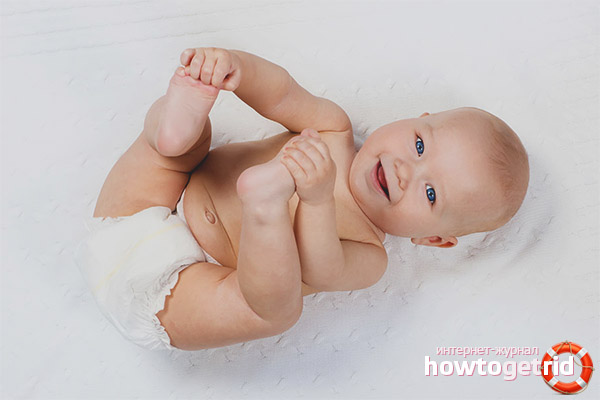
Most pediatric doctors adhere to the version that in modern medicine, not a single drug can help save a child from colic. Despite all this, there are some medications that can be used for severe pain caused by colic in the newborn and the baby. Whether they will get rid of colic or not is hard to say, but it can be assured with accuracy that gas generation will become less.
Medicines that contain simethicone in their composition help to reduce gas formation in the intestines of the child. Its action is aimed at turning the bubbles into a liquid, after which the pressure on the walls of the stomach drops. By the way, Riabal is considered the most effective drug - syrup can be given to infants with severe pain, its effect is observed after 10-15 minutes and lasts for 8 hours.
The safest are pharmaceutical preparations with fennel fruits. Such funds are harmless to the child's body and have a positive effect on it, contribute to a decrease in gas formation in the intestine.
In conclusion, it must be said that colic in a newborn is a common phenomenon and occurs quite often. Not one mother would like her baby to cry or feel pain, but this process is painful, so the baby cries, cries, and even yells with colic. To save the baby from colic, modern medicine has not yet invented a drug. And almost every child suffers from such a phenomenon. In such a situation, parents can only be patient, and wait until the pain passes, of course, having performed several techniques to reduce the pain of their baby. Three months after birth, the colic will pass and will no longer bother the baby or its parents.
Video: how to cure colic in a newborn

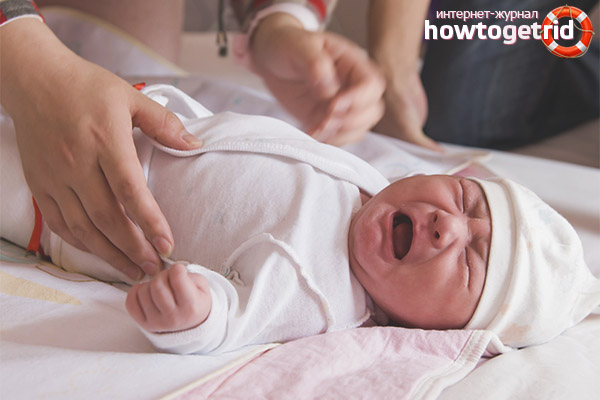
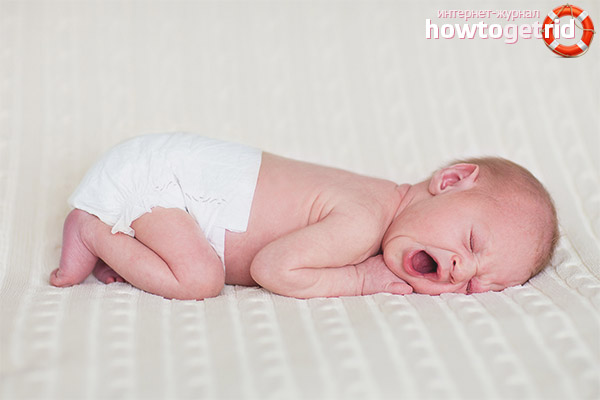
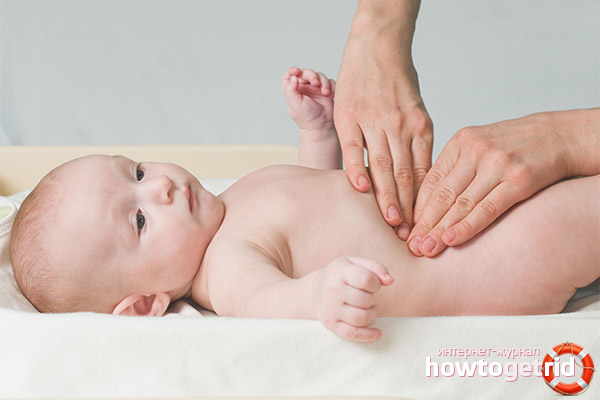




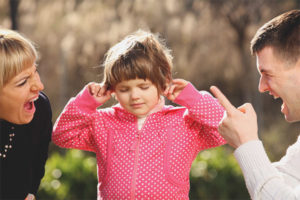

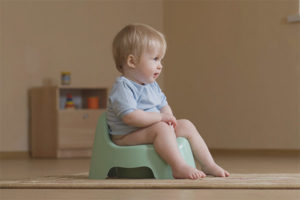

Submit